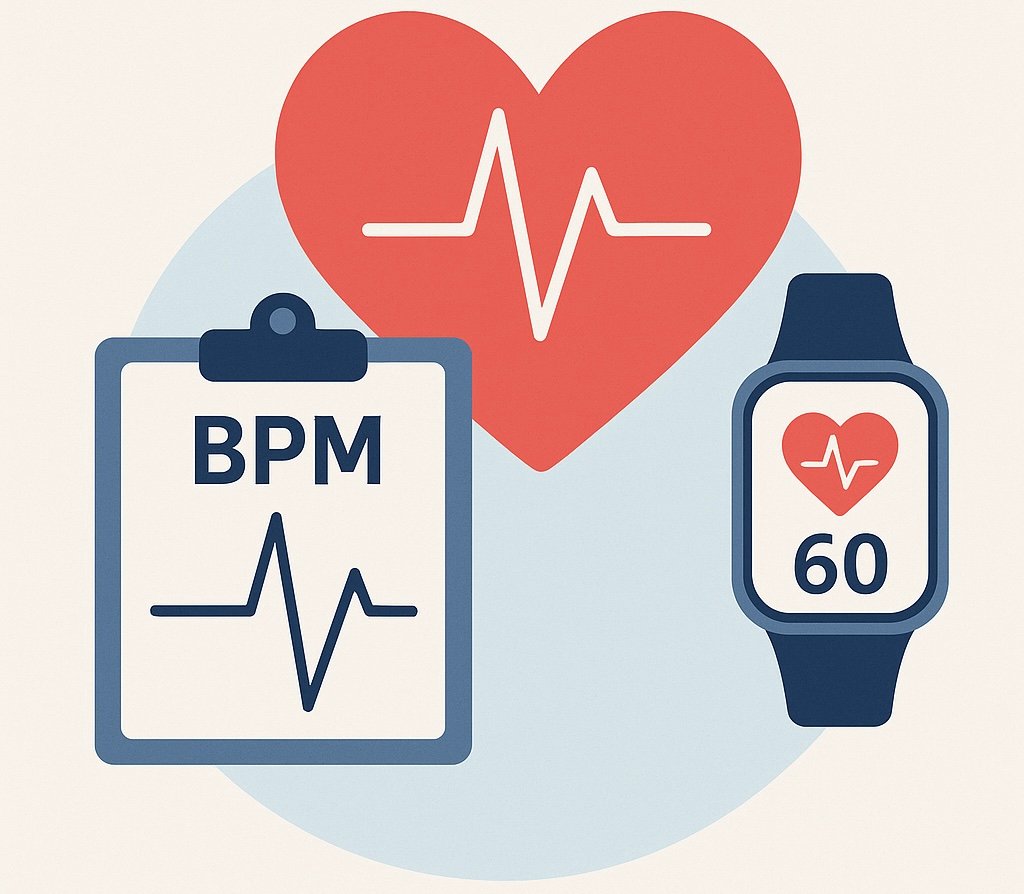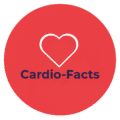
What Is Resting Heart Rate?
Resting heart rate normal range over 40 is an important health indicator for anyone in midlife and beyond. Knowing your numbers can help you improve fitness, prevent heart disease, and monitor your overall well-being.
Your resting heart rate (RHR) is the number of times your heart beats per minute while you’re completely at rest — usually measured right after waking up, before getting out of bed.
It’s a reliable indicator of cardiovascular health and can be influenced by age, fitness level, medication, and medical conditions.
Normal Resting Heart Rate Range Over 40
For healthy adults over 40:
- 60–100 bpm — considered normal by the American Heart Association.
- 50–60 bpm — common in highly fit individuals.
Note: A consistently high RHR (above 80 bpm) may increase cardiovascular risk and should prompt a medical check-up.
Why Does Resting Heart Rate Change With Age?
As you age, several factors can affect your RHR:
- Reduced cardiac efficiency — the heart may pump less efficiently.
- Nervous system changes — affecting heart rate regulation.
- Medications — such as beta-blockers, which can lower heart rate.
- Health conditions — like thyroid issues, anemia, or cardiovascular disease.
How to Measure Your Resting Heart Rate
- Sit or lie down for at least 5 minutes.
- Place your index and middle finger on your wrist (radial artery) or neck (carotid artery).
- Count beats for 30 seconds and multiply by 2.
For convenience, you can use a smartwatch or fitness tracker — but confirm results manually for accuracy.
How to Keep Your Resting Heart Rate Healthy After 40
- Exercise regularly — especially aerobic activities like brisk walking, swimming, or cycling.
- Manage stress — meditation, yoga, and breathing exercises help lower RHR.
- Prioritize sleep — aim for 7–9 hours per night.
- Eat a heart-healthy diet — high in fruits, vegetables, and omega-3 fats.
- Avoid excess caffeine and alcohol — both can raise RHR.
- Have regular medical check-ups — especially if your RHR is outside the normal range.
Best Smartwatches to Track Resting Heart Rate
Here are some reliable wearables for continuous heart rate monitoring:
- Apple Watch Series 9 — Accurate HR tracking, ECG app, and health alerts.
- Garmin Venu 3 — Advanced heart rate metrics and long battery life.
- Fitbit Charge 6 — Affordable option with excellent resting heart rate tracking.
- Samsung Galaxy Watch 6 — Stylish design with reliable health features.
When to See a Doctor
You should consult a healthcare professional if:
- Your RHR is consistently above 100 bpm (tachycardia) or below 50 bpm (bradycardia) and you’re not an athlete.
- You experience symptoms like dizziness, fainting, chest pain, or shortness of breath.
FAQ — Resting Heart Rate Normal Range Over 40
1. What is the ideal resting heart rate normal range over 40?
For most adults over 40, the ideal resting heart rate normal range is between 60 and 100 beats per minute. However, individuals who are physically active or athletic may have a resting heart rate closer to 50–60 bpm, which can indicate better cardiovascular fitness.
2. Is a resting heart rate of 55 bpm healthy for someone over 40?
Yes, for a healthy adult, 55 bpm is generally considered good, especially if you are active and do not experience dizziness or fatigue. It often indicates that the heart is working efficiently.
3. Can stress affect my resting heart rate after 40?
Absolutely. Chronic stress increases the activity of the sympathetic nervous system, which can raise your resting heart rate. Practicing stress management techniques such as deep breathing, yoga, or meditation can help keep it within a healthy range.
4. How often should I check my resting heart rate over 40?
It’s best to check it at least once or twice a week under consistent conditions — ideally in the morning before getting out of bed. Using a reliable smartwatch or fitness tracker can help you monitor trends over time.
5. What if my resting heart rate is consistently above 80 bpm?
If your resting heart rate is regularly above 80 bpm after age 40, it could be a sign of underlying health issues such as high blood pressure, thyroid problems, or cardiovascular disease. It’s important to consult your doctor for further evaluation.
6. Do wearable devices accurately measure resting heart rate?
Most modern smartwatches and fitness trackers are fairly accurate for resting heart rate measurements, especially when worn correctly.
References
- American Heart Association — All About Heart Rate
- Harvard Health Publishing — What Your Heart Rate Is Telling You
⚠️ Affiliate Disclosure
Some links in this article are affiliate links. If you purchase through them, Cardio-Facts earns a small commission — at no extra cost to you. We only recommend tools we trust and believe in based on clinical experience.
✅ Want more science-backed tips to protect your heart after 40?
Join our free newsletter for exclusive heart health updates and get instant access to the PDF guide “7 Proven Tips to Protect Your Heart After 40.”
⚠️ Disclaimer: The content on Cardio-Facts is for informational and educational purposes only and does not constitute medical advice. Always consult a qualified healthcare professional regarding your health. Read our full disclaimer and legal policies.
